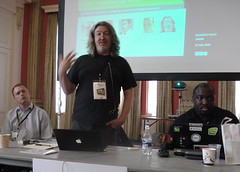Here’s what I tagged on del.icio.us between July 4th and July 5th:
- Folke Koebberling and Martin Kaltwasser- Amphis at Wysing Arts Centre – Worth a visit
- Slashdot | Working Towards an Eco-Friendly Fireworks Display – Heavy metals, toxic chemicals, pretty colours in the sky…
- Virgin, BPI at odds as first infringement letters go out – typical incompetence and stupidity from Virgin Media and the BPI. Arrange the following words into a well-known phrase: a brewery organise pissup a in couldn't
- William Heath gets in to Number 11 Downing St – Nice comment from William – I was invited but had to be elsewhere, and I carry my driving licence with me anyway so could have gone at short notice. I think his views make a lot of sense.

